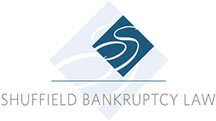FAQ’s
What Is Chapter 7 Bankruptcy?
Chapter 7 Bankruptcy is a complete “discharge” of all or most unsecured debts. This includes medical bills, credit card bills and signature loans. Your secured loans, like car payments and home mortgages, must be paid and kept current if you want to keep that property.
What Is A ‘Discharge’?
A discharge is a court order releasing you from all dischargeable debts and ordering your creditors not to attempt to collect them from you. A debt that is discharged in your bankruptcy is completely wiped out and you do not have to pay it. You will see below that there are some debts that are not released by a Chapter 7 discharge.
Which Debts Are Not Released By A Chapter 7 Discharge?
The debts listed below are exceptions to a Chapter 7 discharge.
- Student loans
- Most taxes
- Domestic support obligations
- Traffic tickets
Can I Continue Using My Credit Cards?
No. Do not incur any more debt, that would be fraud. Also, it is a good idea not to dispose of, sell, trade in or give anything away without checking with your attorney first.
Do I Have To Attend Credit Card Counseling Before I File?
Yes. The Bankruptcy Code requires that all individual debtors who file for bankruptcy relief receive a briefing that outlines the available opportunities for credit counseling and provides assistance in performing a budget analysis.
What is Chapter 13 Bankruptcy?
Also known as a debt consolidation plan Chapter 13 differs from Chapter 7 in that it does not immediately discharge all of your debts. However, it does have many advantages over a Chapter 7 plan. A Chapter 13 bankruptcy can do several important things:
- Allows you to catch up on mortgage arrears
- Strip an unsecured second mortgage
- Allows you to pay tickets and get your license back if it’s been suspended
- Decrease interest rates on vehicles to 5%
